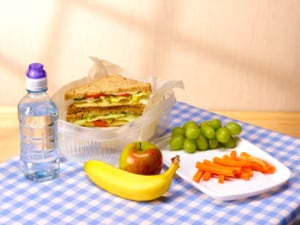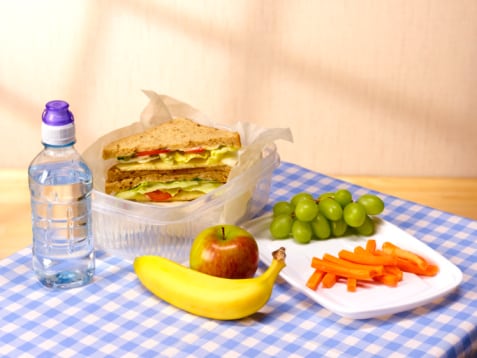
BPA can be found in most soup cans, soda cans and plastic containers. (Photo: Peter Dazeley/Getty Images)
Summer is the season of cookouts, picnics, on-the-go cold drinks and other treats that are often packed in plastic containers. You may not think twice before when packing up the potato salad, but selecting plastics that are free of Bisphenol A (BPA) may be increasingly important to your health, according to a recent study published in the journal Hypertension.
BPA is a chemical that has been used for decades to make plastic clear and strong, but in recent years research has shown that exposure to BPA can increase the risk of breast cancer, diabetes and behavioral problems in children as well as destabilize hormone levels. For this reason, the Food and Drug Administration (FDA) banned BPA in baby bottles and sippy cups in 2012 and baby formula and baby product packaging in 2013, but BPA can still be found in most soup cans, soda cans and plastic containers.
The hypertension study is the latest research to show a possible link between BPA and high blood pressure.
While plastic is in almost everything we touch, BPA becomes a concern when it is used to line food cans or make food containers. The hypertension specifically looked at the health effects of BPA in the coating of beverage cans — an exposure common to almost everyone.
For the study, 60 adults were asked to drink the same beverage, during three different study sessions, in several different containers — glass bottles or cans (lined with BPA like many soda and soup cans). The researchers then measured BPA levels in the study participant’s urine, and checked their blood pressure and heart rate variability several hours after the consumption of each beverage.
They found that urinary concentrations of BPA increased at a level greater than 1600 percent in the study participants who consumed beverages from cans lined with BPA when compared with the people who drank beverages from glass containers.
In the canned beverage group, systolic blood pressure increased by ≈4.5 mm Hg (a statistically significant change) after consuming just two canned beverages. There was no increase in the glass bottle group. There was no significant change in heart rate in either group.
Why It Matters
More than 45 percent of black women have hypertension. We are also more likely to be hospitalized for severe hypertension, a condition that is key cause of heart attacks and strokes. Keeping your blood pressured under control is an important part of staying healthy, so here are a few ways to get the BPA out of your diet.
l. Invest in glass. The jury is still out on whether new, BPA-free plastics are healthier than other options, so glass food storage containers and water bottles are your best bet.
2. Choose bags and wraps over containers. Ziploc bags and Saran wrap products are not made with BPA; aluminum foil is another relatively safe choice.
3. Select Soma. Replace plastic water pitchers for filtered water with new Soma containers. Soma filters are environmentally safe, they come with an elegant glass carafe, and you never have to worry about gritty bits of carbon in your filtered water.
4. Say goodbye to soda. There’s really no way to include soda— especially sugar-sweetened soda—in a healthy diet. Try filtered water with sliced lime or lemon instead, or try flavored Perrier in glass bottles. The grapefruit is especially tasty.








